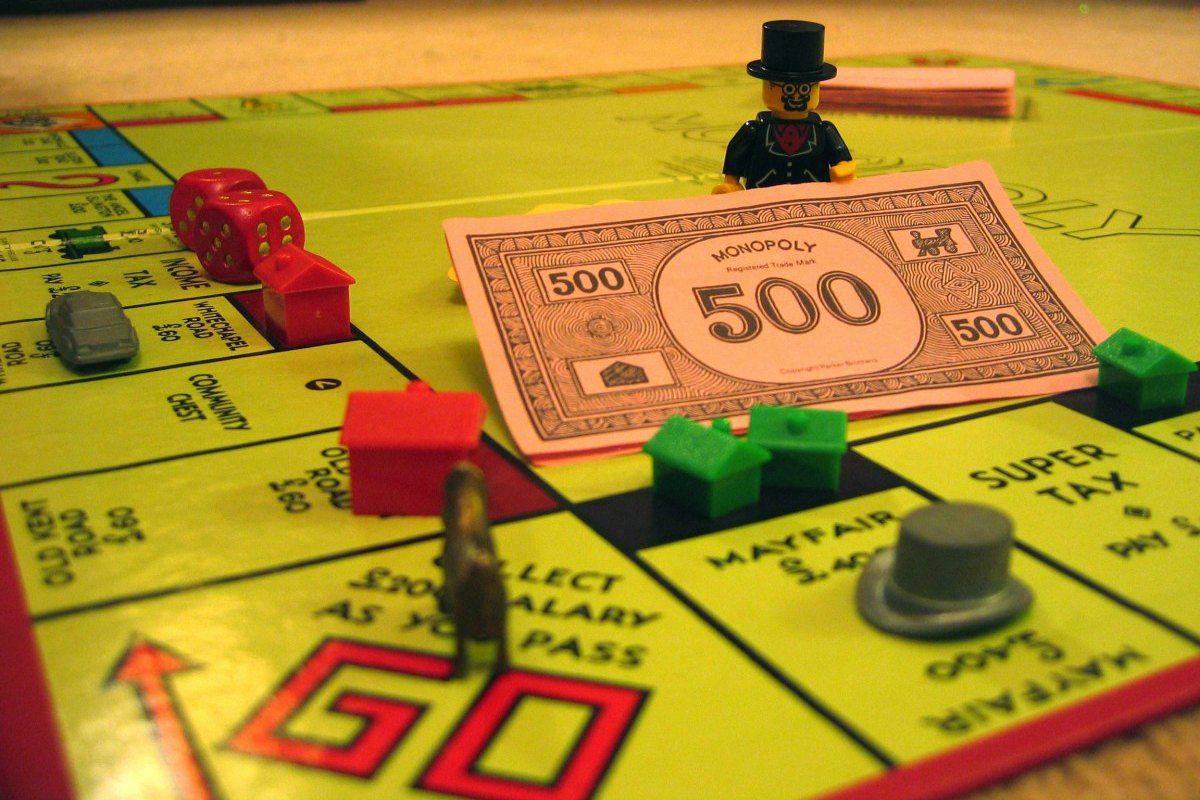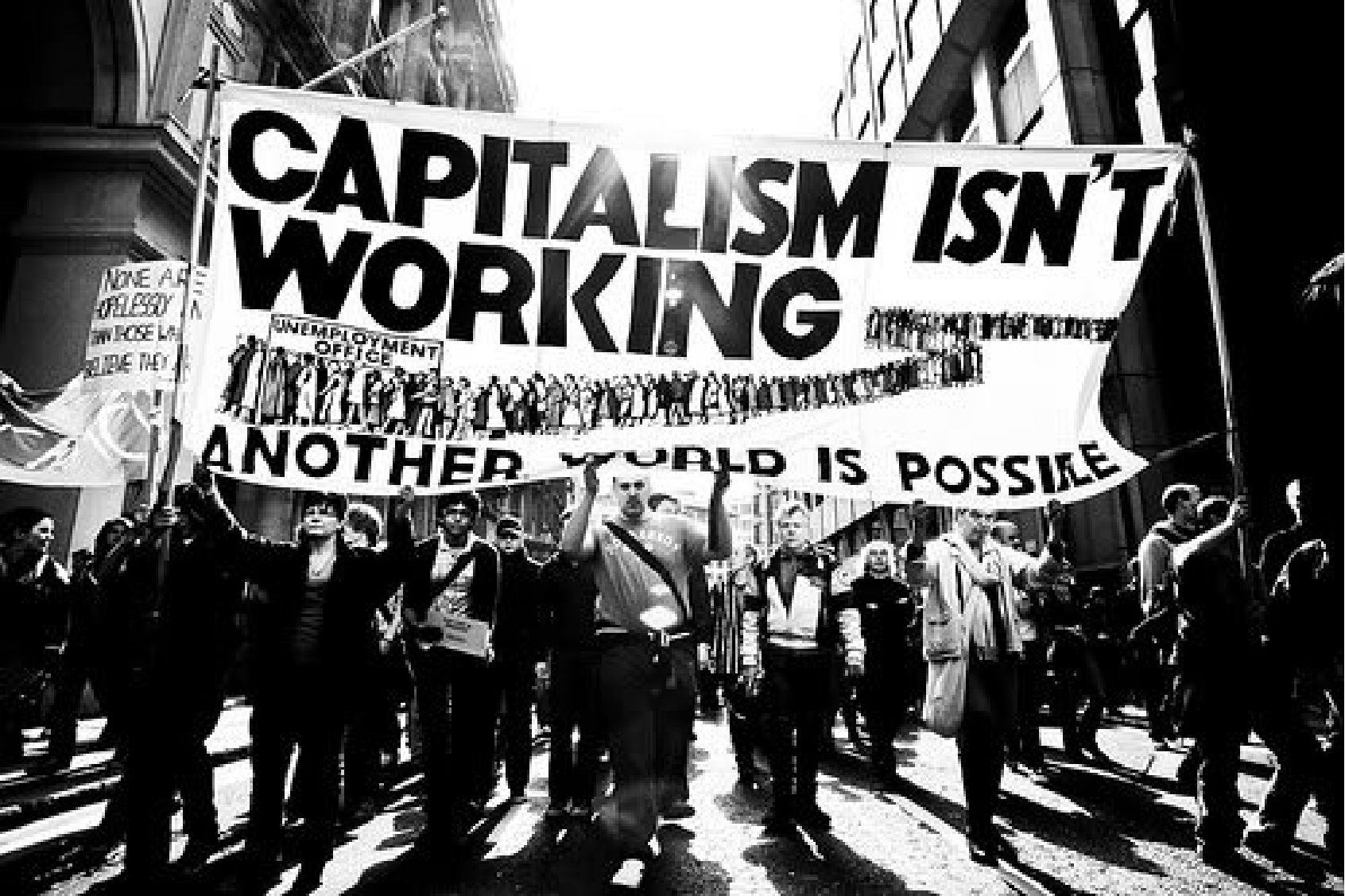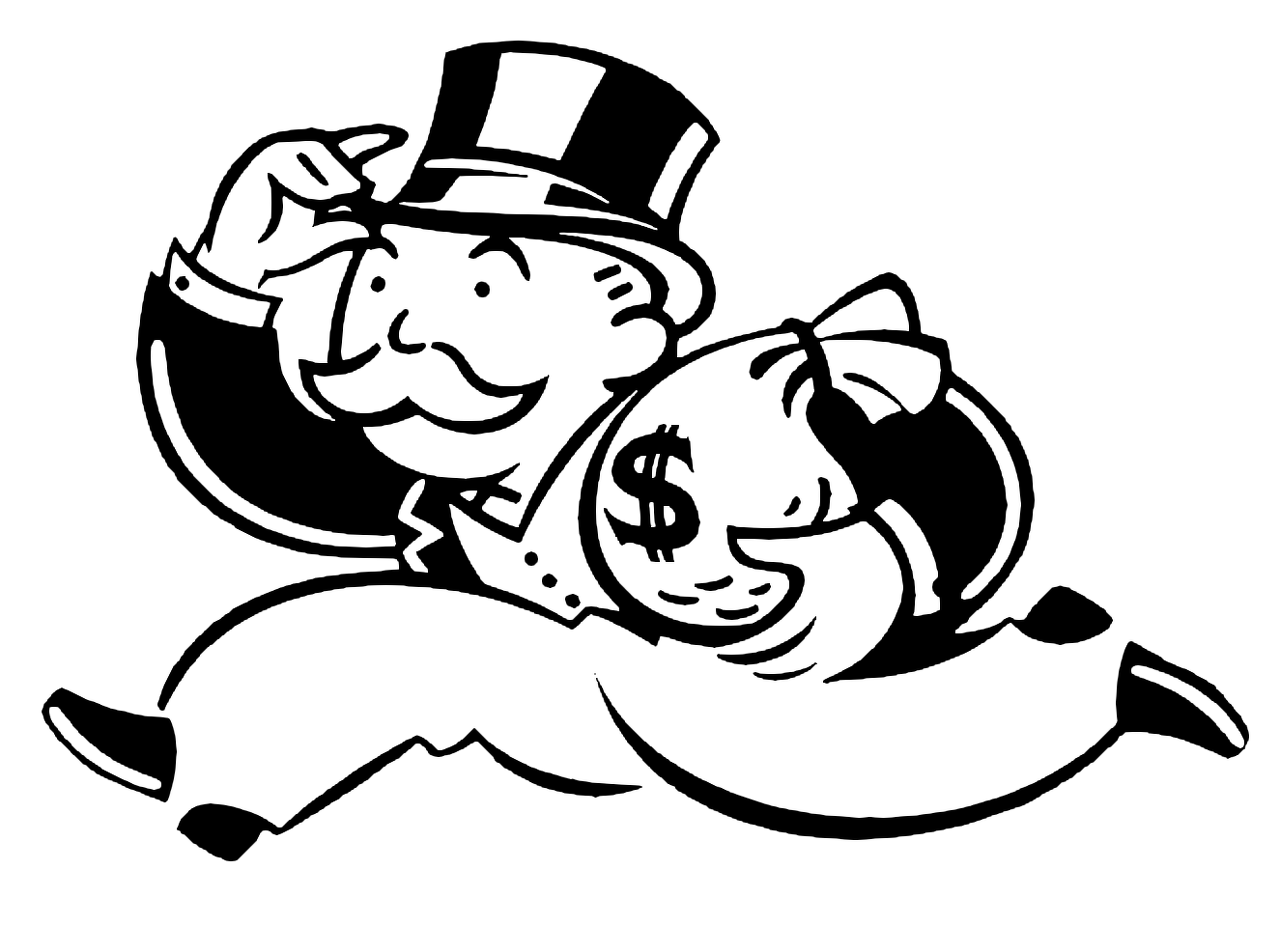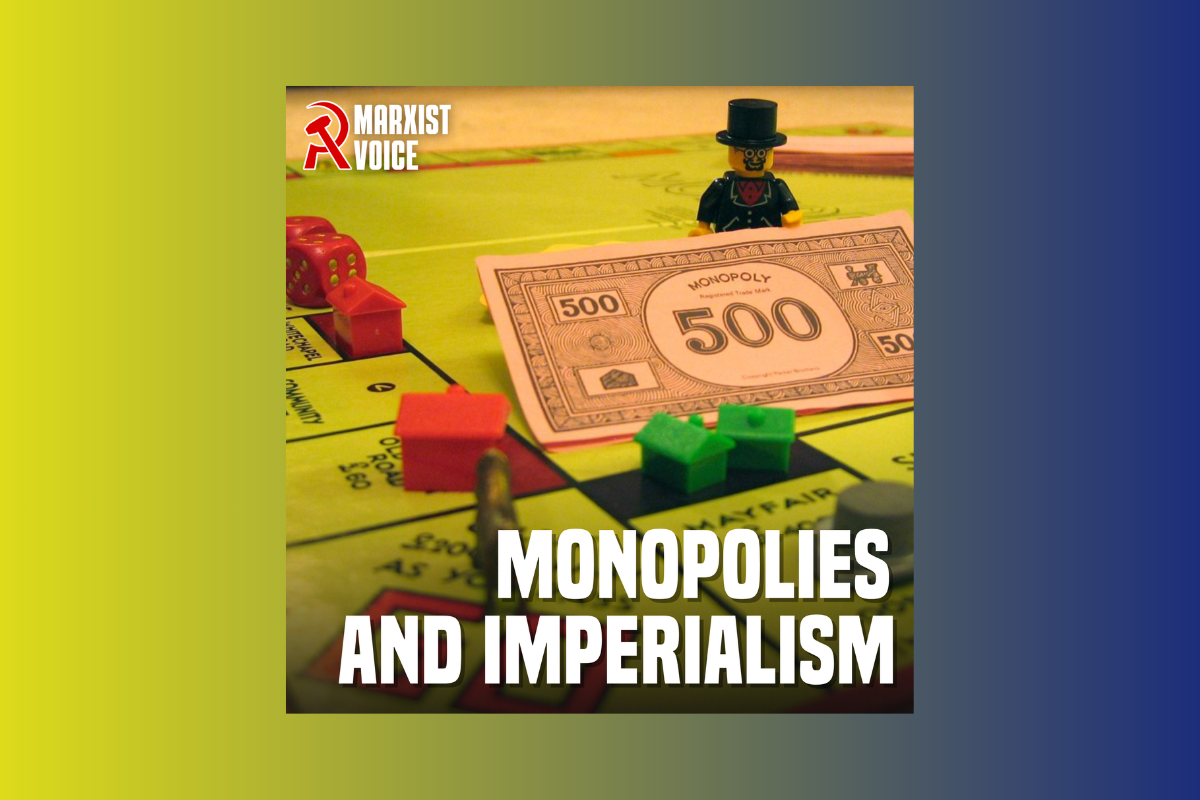The board game Monopoly, which the majority of readers will have played at some point in their life, was created by Elizabeth Magie in 1903. It was designed to express the ideas of the political economist Henry George, an American anti-monopolist who put forward the idea of a land value tax on revenues rather than taxing labour, in his work Progress and Poverty (1879).
The aim of the game is to accumulate the most wealth by owning the most properties, stations and utilities on the board, thereby illustrating the stifling effect of monopoly on competition.
The board game is a useful tool to understand the transformation of “free market” capitalism into monopoly capitalism, a process which has taken place in the most advanced capitalist countries during the late nineteenth century. Lenin describes this very process in his book Imperialism: The Highest Stage of Capitalism (1916) where “competition becomes transformed into monopoly”.
Competition turns into its opposite

In the game Monopoly, the players start off as capitalists on an equal footing. Their task is to acquire, accumulate and develop as much land as they can. Over time, chance events such as bank errors, free parking, or finding oneself in jail can either unlock capital to help create a monopoly and develop land in a certain area or hinder this process. The capitalists who fail to adequately invest in the land by building houses and hotels and who fail to create a monopoly gradually decline in importance and wealth relative to those who do own monopolies and develop their respective properties. The end result is enormous inequality.
As time goes on the failure to create a monopoly and develop properties puts greater and greater pressure upon the finances of middling capitalists. They struggle to remain competitive and cannot charge the extortionate rents that the monopolists do. If the capitalist fails to establish a monopoly by developing the land quickly enough, he will have to tread carefully around the board or be forced to mortgage properties until the inevitability of bankruptcy hits and he is thrown out the game. For as long as these characters remain in the game they face an insurmountable task in challenging the dominant monopoly capitalists.
On the other hand, those capitalists who do invest in property and gain a monopoly become even wealthier, and are then allowed to charge extortionate rents as there is no competition. This gives them spectacular profits which can then be invested into developing further monopolies. This is where capitalism changes into monopoly capitalism. Although the board game focuses on monopolies in land, the process of monopolisation is mirrored in industry and workplaces in the real capitalist world.
Saturated markets
There are no morals or mercy in the game. The whole aim is to out-compete your opponents and accumulate more and more monopolies. Owning monopolies and such vast amounts of capital gives the monopoly capitalist the privilege of sweetheart deals with the law such as buying oneself out of jail or bribing near bankrupt capitalists with a pittance for their “get out of jail free” cards. This is similar to how politicians can be bribed and the law construed to favour big business. They can also play the smaller struggling capitalists against each other to hold control and build their monopoly further. Friendships and family relationships mean little in these situations unless they are profitable, as anyone who has played the board game will tell you.
However, in reality, when certain industries are almost or completely monopolised, the vast amounts of capital which are built up have nowhere else to go and lie stagnant unless there are further profits to be reaped. It is for this reason that, in the real world at least, monopoly-capitalists seek new avenues to export their capital into new markets which necessarily requires them to conquer new lands to gain even greater profits. This is the point at which, as Lenin points out, capitalism reaches its highest stage, imperialism.
This is something the game fails to illustrate as it is limited to an isolated city setting. This highest stage is characterised by the export of capital across borders. The board game shows the process by which capitalism develops to a point where imperialism can and must be born, but it can’t demonstrate imperialism itself.
Another factor which Lenin explains and which the game fails to accurately demonstrate is the role of the banker. During the transformation of capitalism into monopoly capitalism, banks are also transformed into their own monopolies. Industrial capitalists are only able to finance their investments and growth thanks to the banks, which hold reserves of capital. In the board game, it is taken for granted that the bank has a monopoly of capital, but in reality, the dominant role of banks developed in tandem with the development of monopoly capitalism.
Finance capital

The role of the bank in the game is also deceptively neutral, merely acting as a medium for the transactions between the different capitalists and who equally distributes its unlimited amount of capital equally and according to preordained rules. This hides the reality of capitalism. Really, it is the banker who is the real champion of the game and of monopoly capitalism. The industrial capitalists are all in the hands of the banker. It is they who decide how capital is allocated, the rate and interest at which it must be repaid, and thus the details of the business itself. Thus when Marxists talk about the dominance of finance capitalism, it is this relationship to which they are referring. It is the dominance of the bankers who sit on vast sums of capital and who are in the hands of all the major industrialists who are the real winners of monopoly capitalism. As Lenin himself highlights:
“The close ties that exist between the banks and industry are the very things that bring out most strikingly the new role of the banks. When a bank discounts a bill for an industrial firm, opens a current account for it, etc., these operations, taken separately, do not in the least diminish the independence of the industrial firm…[but] when the bank ‘collects’ in its own hands enormous amounts of capital, when the running of a current account for the firm in question enables the bank…to become better informed of the economic position of the client, then the result is that the industrial capitalist becomes more completely dependent on the bank.”
Thus the transformation of capitalism into monopoly capitalism goes hand in hand with the monopolisation of banks creating the dominance of finance capital. It is this dominance that allows the export of capital – the hallmark of imperialism.
End game
 Today, 101 years since Lenin wrote Imperialism, eight monopolists own the same amount of wealth as half of the entire planet. The ranks of the petty-bourgeoisie (i.e. middling-small capitalists) have rapidly declined both in number and in relation to their importance of the economy, producing little in relation to the large monopolists who dominate their respective industries. Whilst some have been bought out by larger capitalists and forced to join the ranks of the proletariat, others such as small shopkeepers face tremendous pressure to remain competitive against the vast monolithic monopolists like Walmart or Tesco.
Today, 101 years since Lenin wrote Imperialism, eight monopolists own the same amount of wealth as half of the entire planet. The ranks of the petty-bourgeoisie (i.e. middling-small capitalists) have rapidly declined both in number and in relation to their importance of the economy, producing little in relation to the large monopolists who dominate their respective industries. Whilst some have been bought out by larger capitalists and forced to join the ranks of the proletariat, others such as small shopkeepers face tremendous pressure to remain competitive against the vast monolithic monopolists like Walmart or Tesco.
Monopoly billionaires at the moment are sitting on vast amounts of capital with nowhere left to invest it as capitalism has reached all corners of the globe. Imperialism, the highest stage of capitalism, has reached its limits. The monopoly board has little space left to buy and invest. The monopolists have indeed succeeded. They are no longer developing the productive forces. The game is at an end.
Only a socialist transformation of society where the means of production are owned by the working class can bring a new game into being.






